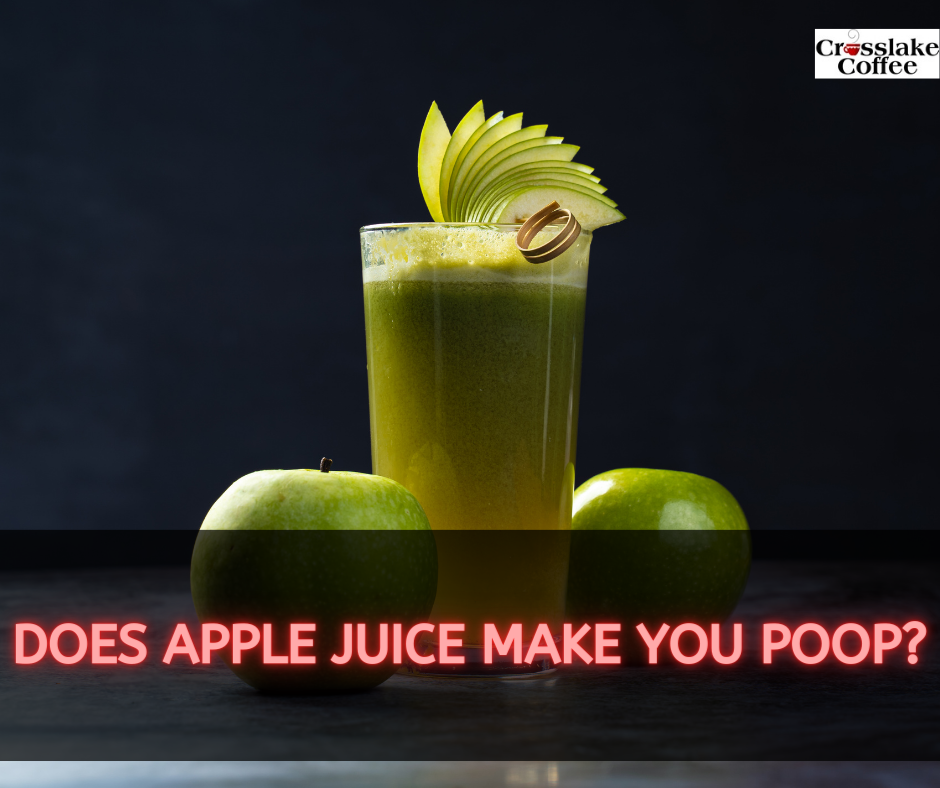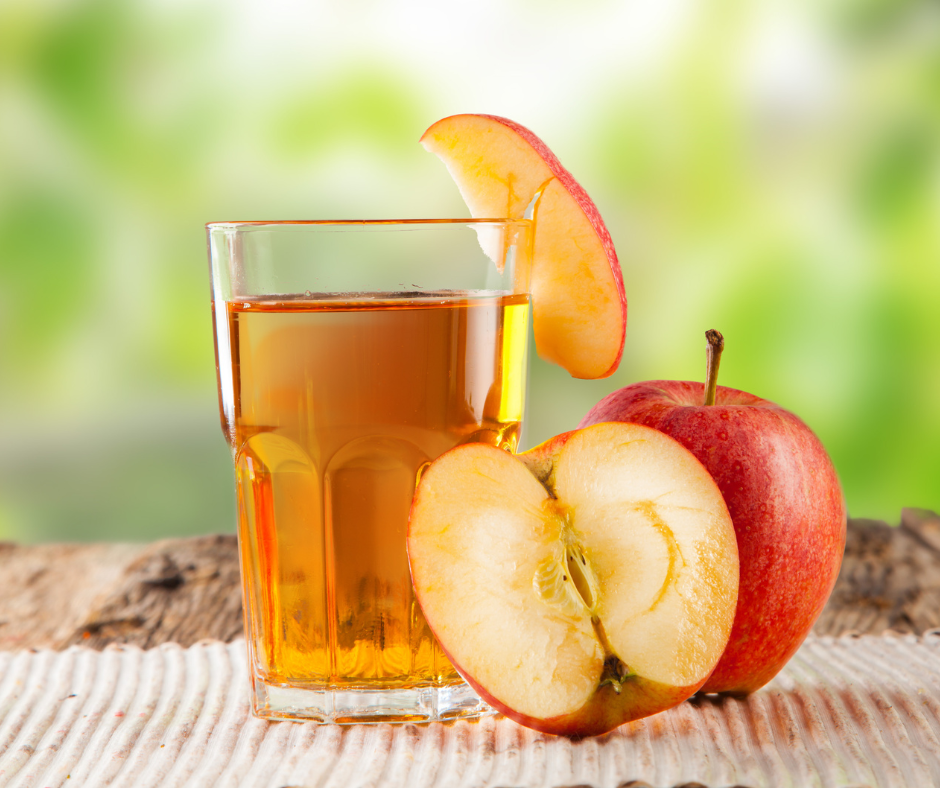Apple juice can have a mild laxative effect on some individuals. Its high water and fructose content may stimulate bowel movements.
Many seek natural remedies for constipation, and apple juice is a popular choice. This fruit juice’s natural sugars and fluids can sometimes aid digestion and promote regularity. The high water content in apple juice helps hydrate the body, potentially softening stool, while its fructose can quicken the colon’s movements.
For parents, apple juice is often considered when trying to alleviate constipation in children due to its palatability. Despite its potential benefits, it’s essential to consume it in moderation. Excessive intake of apple juice might lead to gastrointestinal discomfort or contribute to a higher sugar consumption, which can be counterproductive for overall health. Therefore, while apple juice might assist with occasional constipation, it should be one part of a diet rich in fiber, fluids, and regular exercise to support digestive health.

The Apple Juice And Digestion Connection
Apple juice might have a surprising effect on our digestive system. Within apple juice, a key component is dietary fiber, which comes from the fruit’s flesh and skin. Although the juice has less fiber than whole apples, it still offers some benefits. Fiber is crucial as it helps to keep our bowel movements regular. Soluble fiber, which is in apples, can absorb water. This makes our stool softer and easier to pass. For some people, drinking apple juice may result in more frequent trips to the bathroom. This is because it encourages digestive regularity. Therefore, apple juice’s impact on digestion is tied to its fractional fiber content. Remember, reactions to apple juice can vary from person to person.

Nutritional Breakdown Of Apple Juice
Apple juice is rich in vitamins and minerals. It has vitamin C and potassium. These help your body stay healthy. The juice also has a sugar called fructose. This sugar is natural in fruits.
Too much apple juice can lead to more pooping. This is because of its sugar and water content. The body tries to balance sugar levels and this can cause bathroom trips. But, drinking it in normal amounts is usually fine for most people.
| Vitamin | Minerals |
|---|---|
| Vitamin C | Potassium |
| Vitamin B6 | Magnesium |
| Folate | Calcium |
Diet Myths Around Apple Juice
Many people think apple juice helps you poop. This belief isn’t entirely true. Apple juice contains fiber, which can help digestion. Sugar levels in fruit juices can draw water into the intestines. This can lead to more frequent bathroom trips for some people.
Fibers are important for healthy digestion. Not all fibers are the same. Soluble fiber, like in apple juice, dissolves in water. This makes stools softer and easier to pass. It’s not a strong laxative, but it can help.
Apple juice also has sorbitol. Sorbitol is a type of sugar that can loosen stools. Too much juice can cause stomach upsets in kids. It’s good to drink apple juice in moderate amounts. Eating whole apples provides more fiber than juice. Remember, a balanced diet is best for digestion.

Healthier Alternatives To Aid Digestion
Many people think drinking apple juice helps them poop. It’s because apple juice has a small amount of fiber. But there are better choices for digestion. Foods high in fiber are great for your tummy.
Things like berries, beans, and whole grains can help a lot. They make you feel full and keep your digestion happy. Eating lots of fruits and veggies can also do the trick.
Don’t forget drinking water is super important! Water helps everything in your body work better, including your digestive system. Aim to drink plenty of water every day for good health.
Balancing Your Diet For Optimal Gut Health
Probiotics play a key role in gut health. They are good bacteria that help with digestion. These bacteria are found in foods like yogurt and sauerkraut. By eating these foods, you can improve bowel movements. This may make it easier to poop.
Some foods can upset your stomach. It’s important to know what these are. Avoiding trigger foods can prevent discomfort. Common triggers include high-fat foods, dairy products, and certain sweeteners. Keep a food diary to track what you eat. This can help you identify problem foods.
Consulting The Experts: When To See A Dietitian
Many people deal with digestive problems. A dietitian can offer advice. Stomach aches and irregular bathroom trips are common signs. Eating the right foods may help. A dietitian will listen to your tummy troubles.
Together, you’ll make a digestive wellness plan. It will match your body’s needs. This plan might suggest new foods. Some foods can make pooping easier. Others can calm your upset stomach. The goal is to feel good inside.
- Bloating: Eat less salt and avoid soda.
- Gas: Try not to eat beans and cabbage.
- Constipation: Apple juice might help.
Frequently Asked Questions Of Does Apple Juice Make You Poop
Is Apple Juice Is A Good Laxative?
Apple juice contains sorbitol, which can act as a mild, natural laxative. However, it’s not as effective as medical laxatives for significant constipation relief.
How Long After Drinking Apple Juice Will You Poop?
Apple juice may have a laxative effect for some individuals, typically causing bowel movements within a few hours of consumption.
Why Does Apple Juice Give Me Diarrhea?
Apple juice may cause diarrhea due to its high fructose content and sorbitol, a sugar alcohol which can act as a laxative for sensitive individuals.
What Drinks Are Good For Constipation?
Drinks good for constipation include water, prune juice, pear juice, and herbal teas, specifically those containing senna or dandelion. Aloe vera juice and kefir also promote bowel movements.
Conclusion
Wrapping up, it’s clear that apple juice has qualities that may aid digestion. While it’s not a guaranteed laxative, its sorbitol content could help some individuals. Remember, results vary and moderation is key. If constipation is a concern, always consult a healthcare professional.
For daily health, keep apple juice on the menu for a tasty, potential digestive aid.

